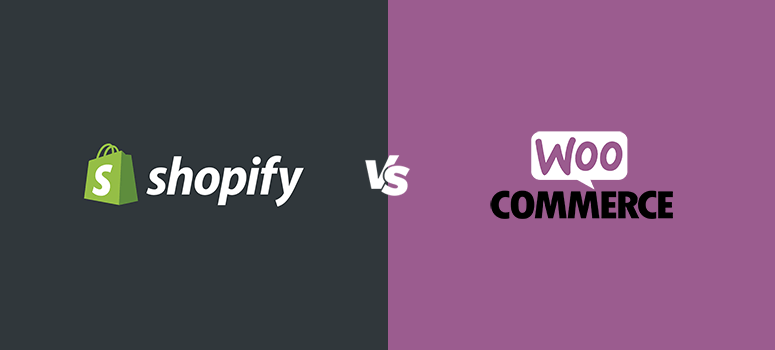Now a days, choosing the right platform to build and manage your online store is crucial. Two of the most popular options available today are Shopify and WooCommerce. Both offer unique features and functionalities tailored to different business needs. In this comprehensive comparison, we’ll delve into the key differences between Shopify and WooCommerce to help you make an informed decision for your online business.
Overview of Shopify and WooCommerce:
Shopify:
Shopify is a fully hosted e-commerce platform, which means it provides everything you need to set up and run your online store in one place. It offers a user-friendly interface and requires no technical expertise to get started. With Shopify, you can choose from a variety of customizable templates and easily add products, manage inventory, and process orders.
WooCommerce:
WooCommerce, on the other hand, is an open-source e-commerce plugin for WordPress. It gives you the flexibility to build and customize your online store using WordPress, the world’s most popular content management system. WooCommerce offers extensive customization options and integrates seamlessly with WordPress plugins, allowing you to create a unique e-commerce experience tailored to your specific needs.
Pricing:
Shopify:
Shopify offers different pricing plans to accommodate businesses of all sizes, starting from $29 per month for the Basic Shopify plan up to $299 per month for the Advanced Shopify plan. Additionally, Shopify charges transaction fees for each sale made through the platform, ranging from 2.9% + 30¢ to 2.4% + 30¢ depending on the plan.
WooCommerce:
WooCommerce itself is free to use, but you’ll need to pay for web hosting, domain registration, and any premium extensions or themes you choose to enhance your store. While WooCommerce doesn’t charge transaction fees, you’ll still incur payment processing fees through your chosen payment gateway.
Customization and Flexibility:
Shopify:
Shopify offers a range of customizable templates and themes to help you create a professional-looking storefront. However, customization options may be limited compared to WooCommerce, as Shopify follows a more structured approach to design and development. While you can customize certain aspects of your store using Shopify’s built-in tools, you may need to rely on third-party apps for more advanced customization.
WooCommerce:
WooCommerce provides unparalleled flexibility and customization options, thanks to its integration with WordPress and vast library of plugins and themes. With WooCommerce, you have complete control over every aspect of your online store, from design and layout to functionality and features. Whether you’re a beginner or an experienced developer, WooCommerce empowers you to create a unique e-commerce solution that aligns with your brand and business goals.
Features and Add-ons:
Shopify:
Shopify comes with a wide range of built-in features and tools to help you manage your online store effectively. These include inventory management, order processing, payment gateways, and marketing tools like abandoned cart recovery and discount codes. Additionally, Shopify offers a robust app store where you can find thousands of third-party apps and integrations to extend the functionality of your store.
WooCommerce:
Similarly, WooCommerce offers a comprehensive set of features out of the box, including product management, order tracking, and customizable shipping options. With thousands of free and premium plugins available in the WordPress repository, you can easily enhance your store with additional functionality such as advanced analytics, subscription services, and customer relationship management.
Performance and Scalability:
Shopify:
As a hosted solution, Shopify handles all aspects of performance optimization and scalability for you. This means you don’t have to worry about server maintenance, security updates, or site speed – Shopify takes care of it all. With its cloud-based infrastructure, Shopify can handle high levels of traffic and sales without compromising performance.
WooCommerce:
WooCommerce’s performance and scalability depend largely on your chosen web hosting provider and server configuration. While WooCommerce itself is lightweight and optimized for speed, you’ll need to ensure your hosting environment can support your store’s traffic and resource demands. With the right hosting setup, WooCommerce can be highly scalable and capable of handling large volumes of transactions.
Support and Resources:
Shopify:
Shopify offers 24/7 customer support via live chat, email, and phone, ensuring you have access to assistance whenever you need it. In addition to direct support, Shopify provides extensive documentation, tutorials, and community forums to help you troubleshoot issues and learn how to make the most of the platform.
WooCommerce:
As an open-source platform, WooCommerce relies on community support and documentation to help users navigate the system. While there isn’t official 24/7 support available, you can find assistance through forums, developer resources, and third-party service providers specializing in WooCommerce support and development.
Latest Statistics:
According to recent statistics:
- Shopify powers over 1.7 million businesses worldwide and has processed over $200 billion in sales.
- WooCommerce powers approximately 28% of all online stores, making it the most popular e-commerce platform on the web.
- Shopify’s market share in the e-commerce platform industry is around 20%, while WooCommerce holds approximately 30%.
- The average order value on Shopify is $72, compared to $90 on WooCommerce.
Conclusion:
In conclusion, both Shopify and WooCommerce offer powerful solutions for building and managing your online store, each with its own strengths and weaknesses. If you’re looking for simplicity, reliability, and ease of use, Shopify may be the right choice for you. However, if you value flexibility, customization, and scalability, WooCommerce provides unparalleled freedom to create a tailored e-commerce experience.
Ultimately, the best platform for your business depends on your specific needs, budget, and technical expertise. By carefully evaluating the features, pricing, and support options of each platform, you can make an informed decision that sets your online store up for success.
Ready to take your e-commerce business to the next level? Contact Arham Technosoft today for expert Shopify and WooCommerce development services tailored to your unique needs. Let’s build your dream online store together!


